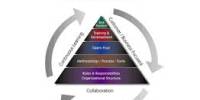Concept of Employee Grievance
The grievance may be any genuine or imaginary feeling of dissatisfaction or injustice which an employee experiences about his job and it’s nature, about the management policies and procedures. Employee grievance is the perception of unfair treatment on the job. There are many factors that make employees unhappy.
An effective grievance procedure provides employees with a mechanism to resolve issues of concern. For instance, non-cooperation from fellow members or a harsh remark relating to domestic affairs may create an unhappy situation at work. Finally, such feelings of dissatisfaction or discontent result in employee grievance. There is hardly an organization that runs smoothly at all times. The grievance procedure may also help employers correct issues before they become serious issues or result in litigation.
Grievance may result from the following factors-
- Improper working conditions such as strict production standards, unsafe workplace, bad relation with managers, etc.
- Irrational management policies such as overtime, transfers, demotions, inappropriate salary structure, etc.
- Violation of organizational rules and practices.
In most of the organizations, employees have the complaint against their employers which is termed as employee grievance. Hence, a complaint affecting one or more employees at a time does constitute a grievance. The complaint may be related to wages, working hours or conditions of employment. The dissatisfaction which is expressed by an employee is regarded as a complaint. When the complaint is filed and brought to the notice of management, it will then be the grievance. Hence, employee grievance has resulted from the perception of unfair treatment and differences in employee’s expectations and managerial practices. A well-defined grievance procedure is an important constituent of employee relation as it provides a medium for the transmission of complaints to the table of management.
Grievances are brought to the employee’s immediate supervisor. This may be either an informal process or the beginning of the formal process. Generally, there will be a requirement that the grievance is submitted in writing using a grievance form. Usually, the supervisor and the union representative will review the grievance to determine whether it is valid. Also, most grievance procedures will require that the submission occurs within a specified timeframe following the event or incident.
Therefore, employee grievance is a formal complaint affecting one or more individuals at a time with respect to wages, working hours, a condition of the work environment, transfers, promotion and so on and formally informed to the management.
Information Source;
















